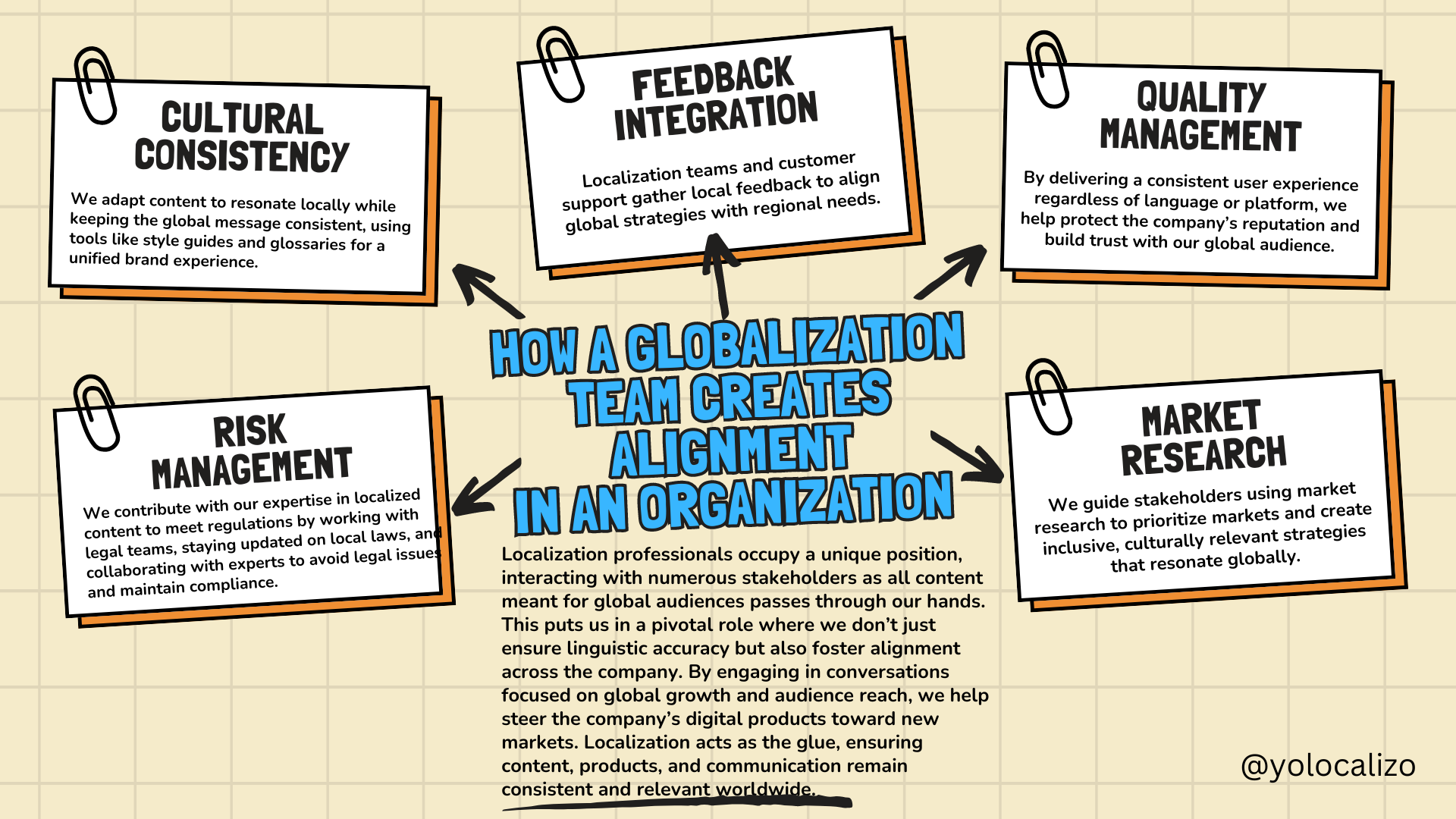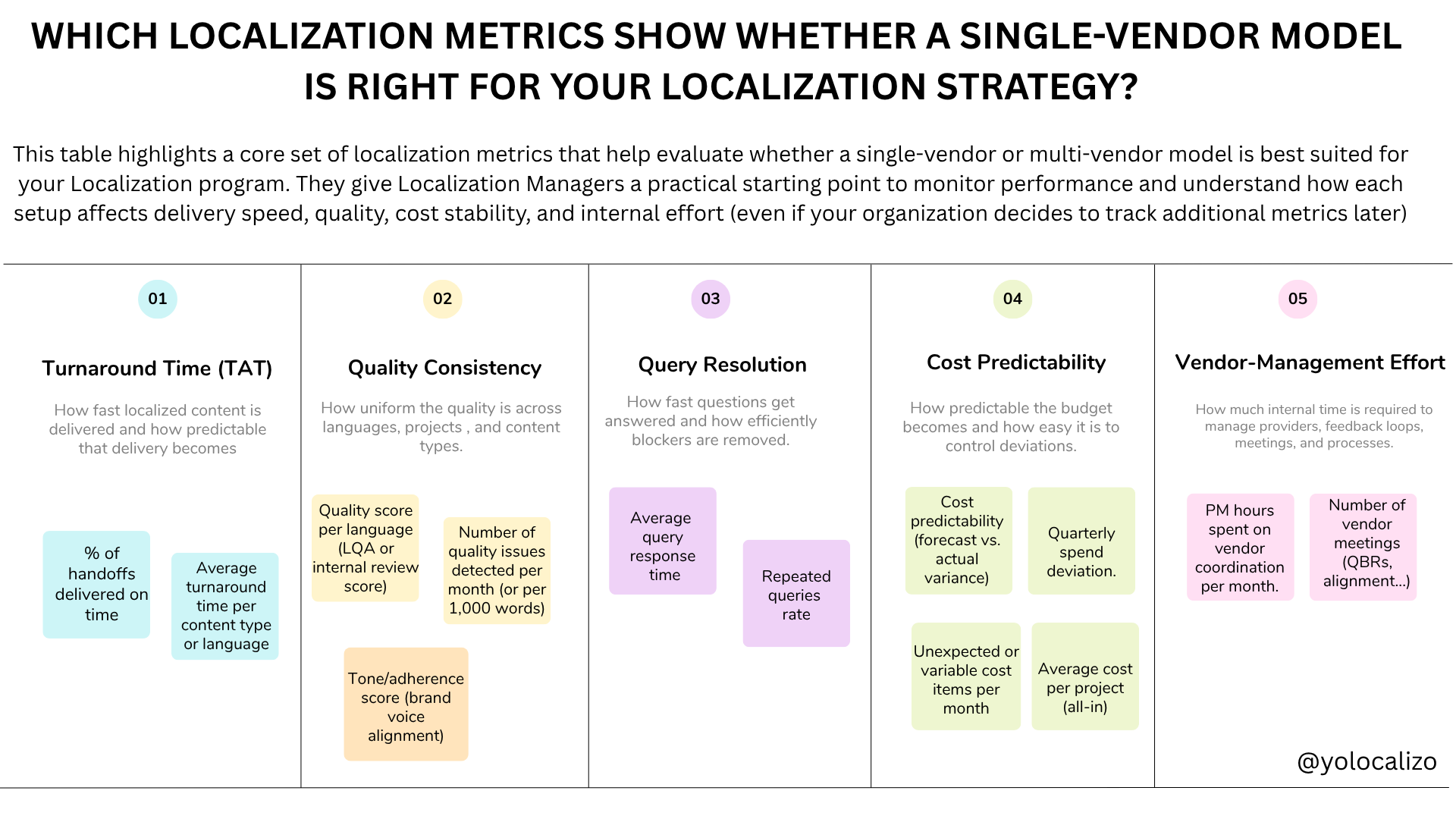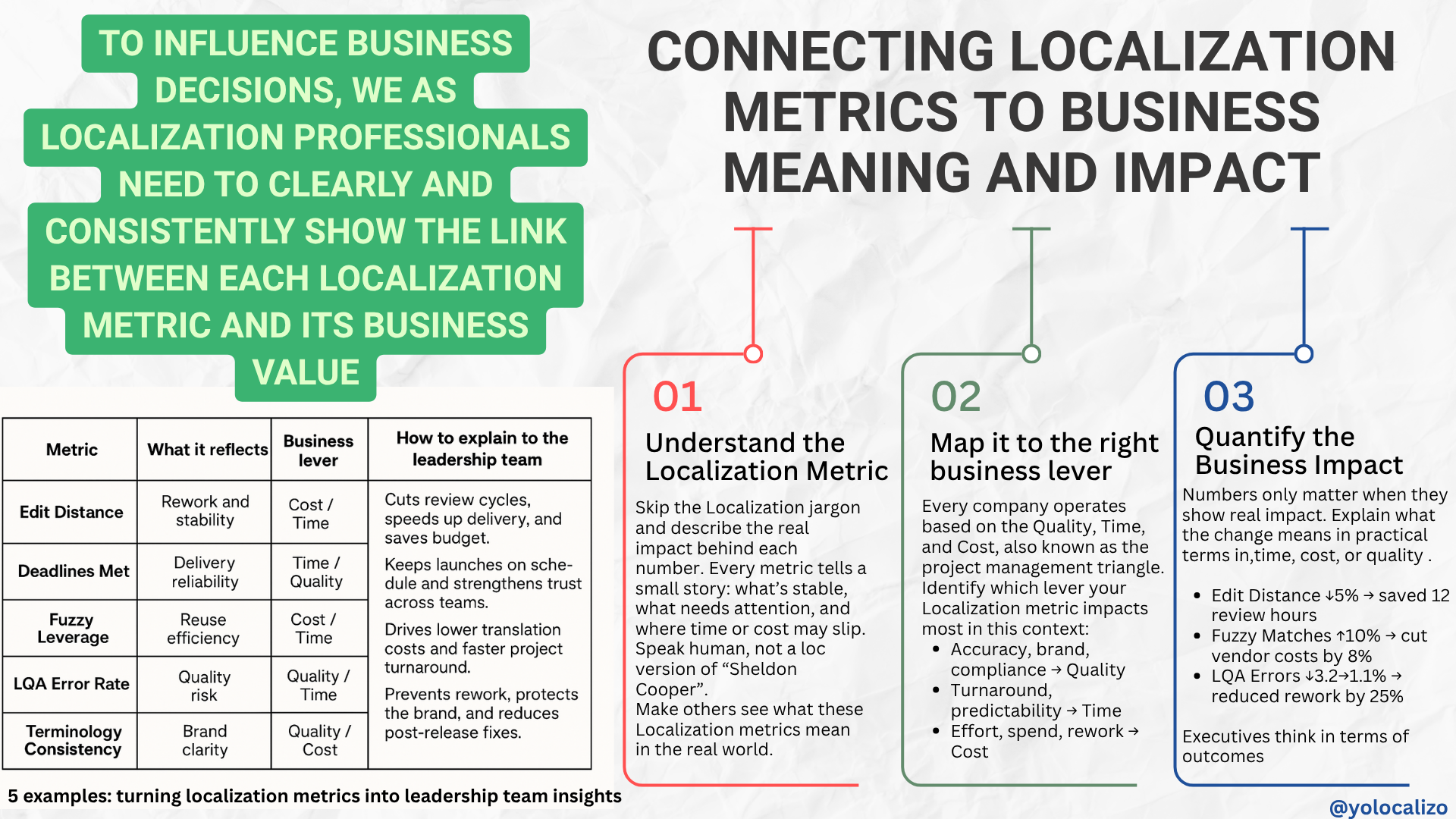Ideas on what a Localization leader can do to build a high-functioning Localization team in the first months in a new role
INTRO
Being "the new guy at Localization" when we change jobs is not easy. I remember every time I have changed companies, and I have had to take the reins to set up a new team or lead an existing one; after the joy of having achieved the new position, as the days went by, I started to have doubts.
Will my team like me? What will they think of me, of my ideas? What will the relationship with my manager be like? How will I interact with my peers?
Transitioning from one job to another can be an enriching experience, or it can be a nightmare.
I have detected in my different movements, and after seeing many colleagues making transitions, that there are a series of usually effective tips.
Click HERE to download the infographic
Go SLOW
The first instinct we have when we land in our new role is to start making decisions to show our worth from day one.
These intentions are good, but there is no need to be in a hurry. We want to make an impact and impress everyone as soon as possible. But in reality, we have to do the opposite; we have to slow down and not be in a hurry to make decisions in those first days, in those first weeks. We have many years ahead of us to prove to our colleagues that we have a lot to contribute! The best thing to do in those early days is to listen.
New managers are eager to make their mark and, as a result, are apt to try to do too much too fast. But I think what actually makes sense is the opposite: slow down and take the time to better understand your new company and role.
Try to get the company's strategy in the first days, study the objectives, not only the immediate ones but also the more distant ones.
I would say almost instead of speeding up and doing too many things at once, approach it the other way around. Slow down and take time to familiarise yourself with your new responsibilities.
Know your team
We often come up with so many ideas and things we want to do that we often overestimate our team's ability to absorb all the changes in the Localisation strategy that we pretend to implement. We must not forget that large-scale changes to strategy can be difficult for teams to adapt to. And adapting to a new manager is also a challenge for the team. The following suggestions can help you to get to know your team better.
• 1:1s is the most effective method to know your team; we must first build a 1:1 relationship, which will undoubtedly lead us to know our team. The 1:1s is also the perfect opportunity to ask specific questions to our team, for example.
o How long have you been working here?
o What works really well in the team?
o What do you like the most that make you want to continue being part of the team, of the company?
o What is it that you would not like to see changed under any circumstances?
o If there is one thing about this job/team that you wish would improve, what would it be?
In short, it is important to thank the employees for sharing so openly during the 1:1s, it is in these interactions that we begin to cement our relationship with the team.
• Talk about your own leadership style - what kind of a leader are we?
Explaining who we are and what we are like will reassure the team.
I usually state that right up front. Being honest and letting people see me without a mask (kind of WYSIWYG What You See Is What You Get using a software UI analogy) is something that has worked very well for me, especially in my current company.
• Talk about your why
Why do you choose this job, or why you are passionate about the company or why you are passionate about the industry? By explaining your why people will connect in a much deeper way if they find your way inspiring.
Make a good impression
While I mentioned in the previous paragraphs that we should not rush into decisions, that does not mean we do not have opportunities to make a good impression from the first days. Here are 5 ideas for reaping the rewards from the start
• Show yourself to be a hard worker from the very first days
• Show enthusiasm and passion for your role
• Co-define your team charter with your team
• Create and learn your elevator pitch
• Pay attention to horizontal relationships, not just vertical ones.
Understand the situation
We have to understand the situation of the company and our team before undertaking any change. How do we do this?
1.-SWOT analysis
A SWOT analysis is a straightforward yet powerful tool to help us develop our Globalization strategy, whether we're building a Loc strategy from scratch or evolving an existing one. SWOT stands for Strengths, Weaknesses, Opportunities and Threats. When we take the time to do a SWOT analysis, we'll be equipped with a solid strategy for prioritizing the Localization work we need to do to grow our business. In this link, you have an excellent guide about how to execute a SWOT analysis
2.-Employee satisfaction surveys
Review (if any!) employee satisfaction surveys of your company or Localization team for the last quarter. Previous surveys provide valuable insights into our organization culture empowering us to create effective action plans;
Carefully review the survey and pay attention to the comments or rating on the outliers is a good practice as it will give us a good approximation of how things are going on the inside.
3.- Am I aligned with my manager?
Another critical step to understanding the situation is related to our boss. We must use the first few weeks to learn how to work with our manager. We must understand what expectations they have of us. We have to proactively seek as much information as possible to answer the question "am I aligned with my manager? The key here is really making sure we understand what s/he expects from us. Having a meeting with our manager and discussing in an honest conversation about expectations is a good course of action to help us craft our Localization Strategy. We can move forward with the conversation with the following questions.
• Is my view of what I'm here to do the same as the boss's?
• Am I here to turn something around?
• Am I here to sustain success?
• Am I here to accelerate growth?
• What are the biggest challenges the organization is facing (or will face in the near future)?
• If you were me, what would you focus attention on?
4.- Shape your strategy TOGETHER with your team, and make sure you have input from your manager and feedback from your stakeholders.
One of my most embarrassing memories was when I sort of isolated myself and "alone" created next year's Localization strategy. When I called the meeting and showed my deck to the team, in which I told them the different objectives and explained why these objectives were important, little by little through their body language and later by their questions, I realized that they were not "buying" my Localization strategy.
From that moment on, I promised myself to create the strategy always with the team.
The payoff of actively involving my team in defining my strategy is increased team engagement and better performance as it has been
created between all of us.
When defining such a strategy, we must not forget such important elements as
Team Purpose
Why our team exists
Team Focus
What are the 3-5 areas to which we will devote our energy?
Team/company alignment
How do those areas align with overall corporate priorities?
Stakeholders
Who are our key stakeholders?
What do they expect from us? In that sense, let me recommend a RACI matrix, as it works very well to clarify expectations.
Success Metrics
How will success and failure be measured at the individual, team, and team levels? I have written a lot about metrics, and in particular about Localization KPIs in different posts. Here in case you want to go deeper into the subject
Source: Reading Graphics
Summary
While it is true that the first few weeks in a new job, with a new team, with new stakeholders, are stressful, there are certain actions that we can take that, they can help us to set ourselves and our team up for success.
Please feel free to leave your comments below on what techniques, ideas, suggestions, actions or tactics you have tried in your transition to new jobs that you have found helpful!














This feels like a pivotal moment. Localization teams are being asked to support more markets, move faster, use AI responsibly, and show impact, not just output. Expectations are higher than ever, but many teams are still trained mainly for execution. We are strong at delivering localization work, yet we often struggle to move from output to outcome and to clearly explain the impact of what we do.